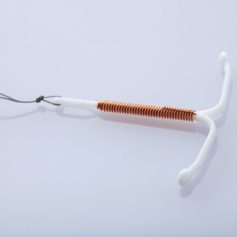
Are You Suffering the Harmful Side Effects of Mirena IUD?
Are you using Mirena for contraception? The Longview product liability attorneys at Sloan, Bagley, Hatcher, Perry, Runge, Robertson and Smith Law Firm are now taking on cases for women who have suffered injuries from their use of this hormonal intrauterine device (IUD). Many women were interested in Mirena because of its convenience. Mirena, manufactured by Bayer Pharmaceuticals, is surgically implanted inside a woman’s uterus and releases progestogen as a method for birth control. Sadly, many women experienced harmful side effects from this type of IUD.
Mirena Uterine Perforation
One of the most severe side effects of Mirena is uterine perforation. After these devices are implanted in the uterus, they can become displaced and perforate the uterine wall. Many women may not be aware that uterine perforation occurred until days or weeks after the initial tearing. Some of the side effects of perforation include:
- Pain in the abdomen
- Nausea, dizziness or weakness
- Fever and chills
- Bleeding that is heavier than normal
Women are encouraged to contact their doctors immediately if they notice any of these symptoms, as perforation could have occurred. A doctor will need to remove the IUD, and women may need to undergo additional surgeries to repair the damage.
Pelvic Inflammatory Disease
Another possible side effect of Mirena is pelvic inflammatory disease. According to Bayer Pharmaceuticals, this takes place in less than one percent of users, but it is still a possibility. Pelvic inflammatory disease or “PID” is an infection of the uterus. PID can also cause infection in other organs such as the fallopian tubes. PID is a bacterial disease that can result in little to no side effects or very serious side effects such as pain during sex, abdomen sensitivity, painful urination and irregular bleeding. PID is typically treated by antibiotics.
Intrauterine Pregnancy, Cysts & Other Complications
Intrauterine pregnancy is another potential side effect of the Mirena IUD. In July 2008, the FDA required that Bayer Pharmaceuticals make changes on the warning label for this medical device. One of the changes was the addition of the warning for intrauterine pregnancy. Mirena is a birth control device, but in some rare circumstances pregnancy can still occur. When this happens, women should immediately seek to have the device removed. Many women may also suffer from ovarian cysts as a result of Mirena. This is one of the more minor side effects and cysts may go away on their own. Similar to perforation, Mirena IUD can also become embedded in the uterus, which can decrease the effectiveness of the contraceptive and even lead to ectopic pregnancy.
Mirena’s Marketing Campaign
The Food and Drug Administration (FDA) took issue with Bayer Pharmaceutical’s Mirena campaign saying that it downplayed the actual risks of the device and actually overestimated Mirena’s effects. Although Bayer has since changed the campaign for Mirena, many women may have been manipulated into having the Mirena IUD implanted due to false marketing. Marketing defects are a type of product liability that occurs when a manufacturing company falsely portrays the risks and benefits of a particular product. In many instances, consumers are hurt because of it.
Contacting a Texas Mirena IUD Attorney
If you or someone you love has experienced the negative side effects of the Mirena IUD, contact a Texas Mirena IUD attorney from our firm to discuss your options. Sloan, Bagley, Hatcher, Perry, Runge, Robertson and Smith Law Firm is now taking on these types of defective medical device cases in Longview, Houston and all of East Texas. Free consultations are available, so call today.
